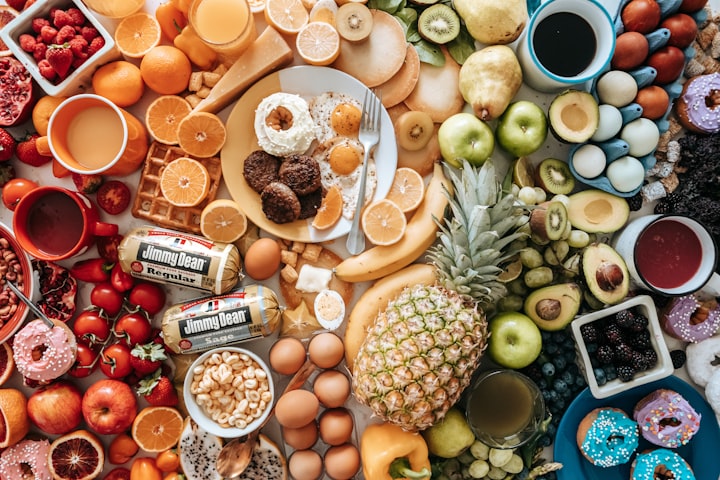How Ramadan Made Me Realize I Boredom-Eat
The science behind food and emotions

This year, like every year since I was old enough, I am fasting for Ramadan, a holy month where Muslims don’t eat or drink from sunrise to sunset and strengthen their connection with God.
No, not even water.
It might seem difficult, but most Muslims will tell you it really isn’t as bad as it seems. In fact, I, like many other Muslims, find Ramadan to be my favorite time of year.
Essentially, Muslims wake up early before sunrise to eat a pre-dawn meal; suhoor. This meal will keep us energized for the day ahead and will ensure smooth fasting. The fast is broken at sunset during a meal called iftar. Families come together to thank God for food to break their fast with and eat delicious food to celebrate the end of another day of fasting.
As you can imagine, there are some obvious lessons to be learned from Ramadan.
Above all, it taught me how much I take food for granted. Fasting has made me realize how accessible food has been for me all my life and how the millions who are unable to access food feel on a daily basis. It’s taught me empathy; a big lesson of Ramadan.
It’s also taught me some less obvious lessons and brought on lots of realizations.
Firstly, who knew food was such a source of entertainment for me? Who knew it took up so much of my time and was such a convenient way to procrastinate?
There have been so many times where I’ve sat down to study; pencil in hand, book in my lap, and laptop open, when I realized something was missing; food.
I struggled to keep my focus and felt my study experience to be lacking. What was studying without food? What was anything without food? There were so many times where I neglected my work and traveled to the kitchen; desperate to fill the void. Upon remembrance that I was fasting, I would grudge back to my work only to complete the cycle again once I forgot I was fasting. I was barely able to get work done and I was constantly itching to make my way to the kitchen.
I realized how dependent I was on eating. It was the perfect excuse to forget priorities and focus on the fun, intoxicating, and addicting world of flavors.
There were other times, too, where I wasn’t studying, but just sitting, bored out of my mind, when I mindlessly trekked to the kitchen; an act of muscle memory. It felt like I was sleepwalking or possessed! Why was I so used to going to the kitchen when I wasn’t even hungry? And why did I keep forgetting that I was fasting?
Simple. I did what so many have done; I programmed my brain to resort to food for a myriad of situations: boredom, procrastination, and other emotions like stress and happiness.
According to “Why We Eat When We’re Bored” by Food and Nutrition, dopamine is the culprit behind our boredom and emotional eating habits.
Dopamine is the “feel-good” neurotransmitter in our brain that is correlated with pleasure and happiness. It’s the reason we go back to enjoyable activities like spending time with family and eating. Our brains have correlated food with pleasure; making food and dopamine synonymous. The rush of dopamine we feel when we eat is addicting, and that’s why we go back to the feeling even when we’re not hungry.
That’s why when there’s nothing to do, we reach for something we know will make us happy and keep us entertained; food. It’s also why we reach for food when we’re stressed or upset; we know it will make us feel better.
For some, the relationship between dopamine release and food has become an inescapable ritual; leading to obesity and poor nutritional choices. Companies know what tastes good and those foods are accessible everywhere and priced cheaply; offering little to no nutritional value but strengthening the relationship between food and pleasure for many.
So, this Ramadan, I have come to realize that I may be a sufferer from food addiction. Fasting has made me realize how different life is when I’m not constantly plagued by food; it has made me realize how intricately my emotions are linked with eating.
Now, as I fast and the option of food is quite literally off the table, I push myself to escape the confines of food; to keep working even when procrastination in the form of food taunts me. I learn to find other coping mechanisms to my emotions like boredom and stress; I read, I call a friend, I take a walk.
And when the sun sets and it’s time for me to break my fast, I eat because I am filling a physical void of hunger, not an emotional one.
About the Creator
Soha Sherwani
Hello everyone! You can find me @SherwaniSoha on Twitter and @SohaSherwani on Medium!
Thanks for reading!






Comments
There are no comments for this story
Be the first to respond and start the conversation.